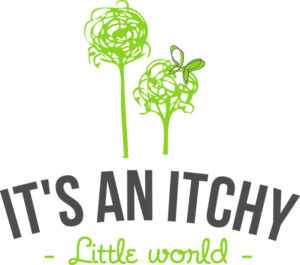Building Confidence in Your Child with Eczema

By Jennifer Moyer Darr, LCSW (bio below)
Confidence comes from within and builds over time as children master new skills and develop a sense of competence. While we can’t give our kids with eczema confidence there are some things we can do to help them become more confident and self-assured.
Words Matter
From an early age children pick up on our words, tones, and emotions and often incorporate them into their world view. This means we can help shape their eczema story before they even begin talking. Take a moment to think about how you describe your child’s eczema. Is it a “burden” or “battle” that you have to “endure” or an “illness” that “fosters strength” and “encourages organization?” Is it “just eczema” or “a horrible rash?” While all those statements may be true, reframing negative thoughts/language can help not only us cope more effectively but our children as well.
Be an Educator
Typically between ages 3-4 children become more aware of differences. Educating their peers as early as preschool can be helpful in removing the curiosity and help them understand and support your child. Keep things brief, age appropriate and involve your child as much as they are comfortable. Maybe they only have one line at first but this empowers them to begin advocating for themselves and creating their eczema story. Being able to identify “it’s just my eczema – you can’t catch it” or “you can help me by………..” allows them to engage peers and adults alike and having peer support early on will help set the stage for later transitions.
____________________________________________________________
Related Post: The Eczema Song Empowers Children with Eczema
____________________________________________________________
Encourage Strengths
Eczema care can be daunting and for some children so much attention goes to eczema care that this begins to define them. What does your child enjoy? What do they do well? Encourage these activities and help your child find their passion. Encouraging them to try new things and take risks not only helps them build confidence but it can be the difference between “I’m Joe and I have eczema” and “I’m Joe. I play basketball, have a pet gecko, love science and oh, yeah I have eczema.”
Use Behavior Specific Praise
We all like to hear “nice job” but using behavior specific praise really highlights what someone has done well. Hearing “well done” at the end of unwanted skin care is good but hearing “I know you didn’t want to do the wet wraps, but I really liked how you just took a deep breath and got it done quickly” provides more engagement and a clear emphasis on the behavior(s) you would like to see more of.
____________________________________________________________
Related Post: Our Eczema Trials: Wet Wrap Therapy
____________________________________________________________
Provide Choices When Possible
No one likes to be told what they “have to” do all the time and this can diminish confidence and decision-making ability while increasing opposition. Unfortunately having eczema often comes with a lot of have to….have to take a bath, have to put on lotion, have to do wet wraps, have to take medication. Giving choices and empowering kids with eczema to evaluate their needs can help minimize this and encourage increased independence as they get older. As small children choices may only be about which pajamas they want to wear over their wet wraps or which toys they want in the tub. As they get a little older choices may include “Do you want to rub in your moisturizer or do you want mommy/daddy to do it?” As they get older ask them to assess their skin and help decide what level of care is needed. As teens they can better assess cause and effect and may sometimes choose options you disagree with. It can be helpful to discuss their thoughts and choices. Ask cause and effect questions such as: “If you skip your bath tonight what do you think the result will be?” or “Would it be more helpful to be a little late to school and do some skin care now or be on time but itchy?” Although your teen will likely test the boundaries, offering a supportive approach may help them get back on track faster than telling them they “have to.”

Bio: Jennifer Moyer Darr, LCSW is the Manager of Outpatient Behavioral Health Services at National Jewish Health in Denver, Colorado. For the past 12 years she has provided clinical services to children and families living with eczema, asthma, food allergies and other chronic illnesses.
